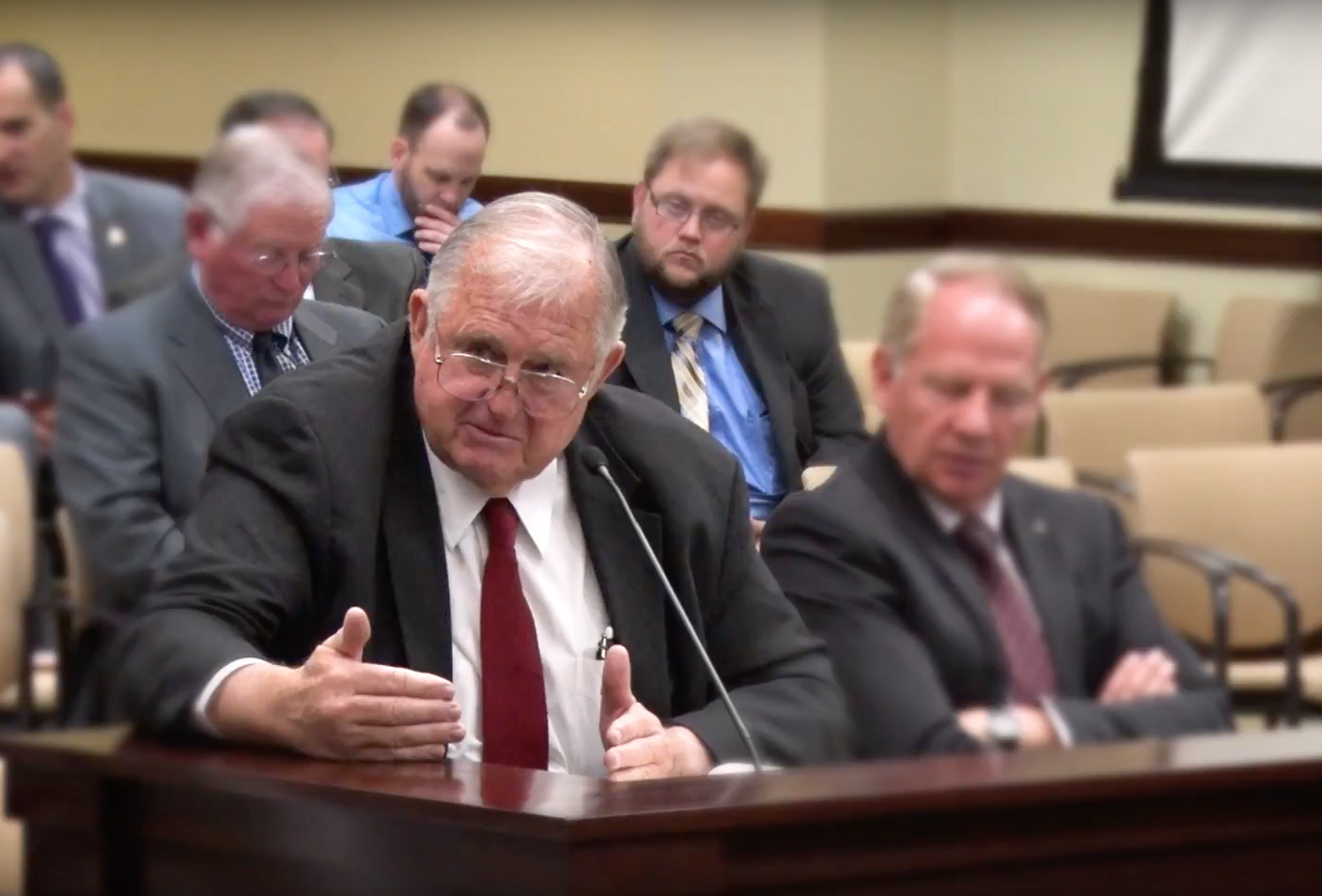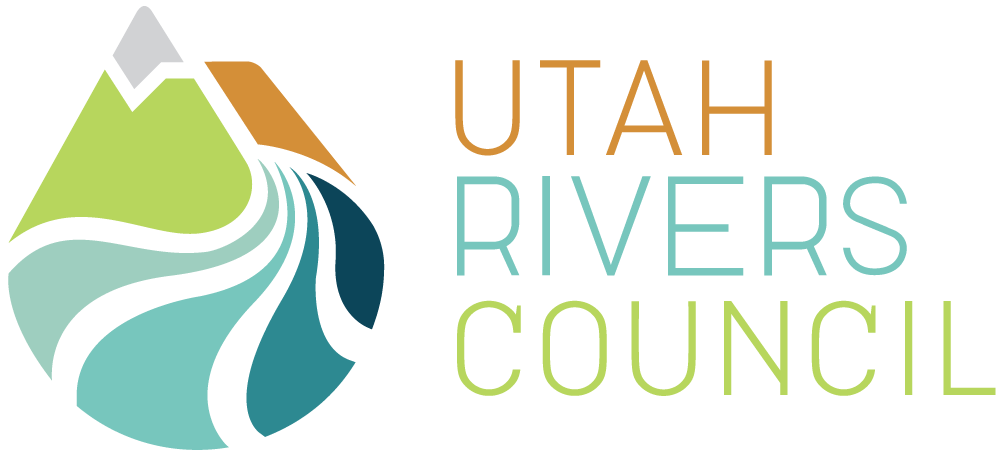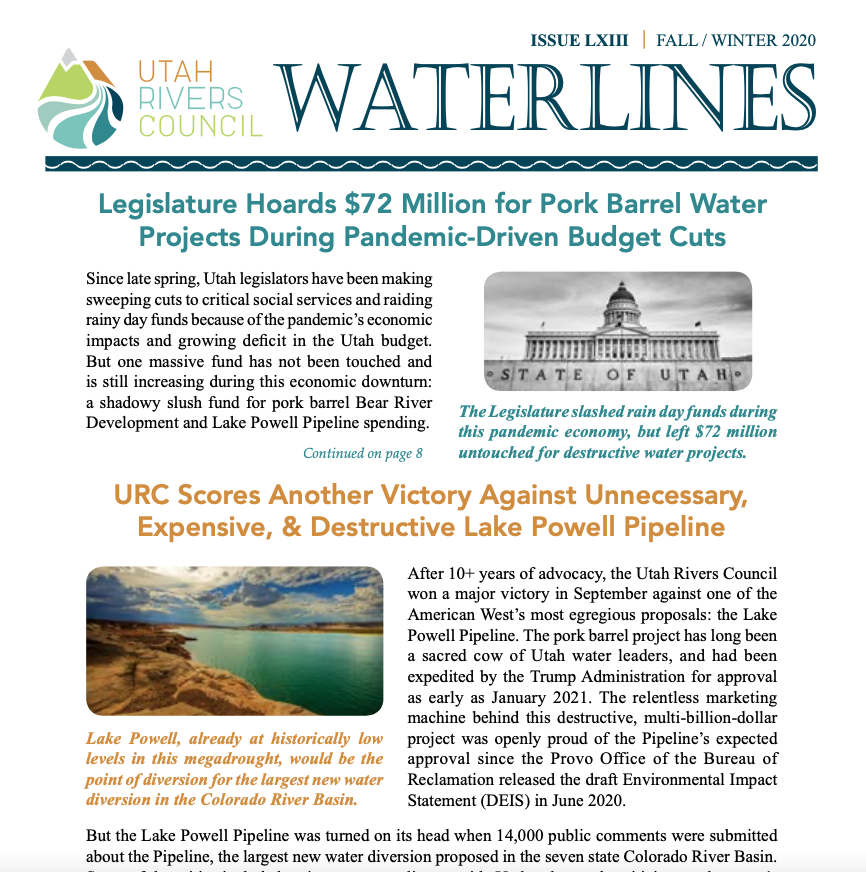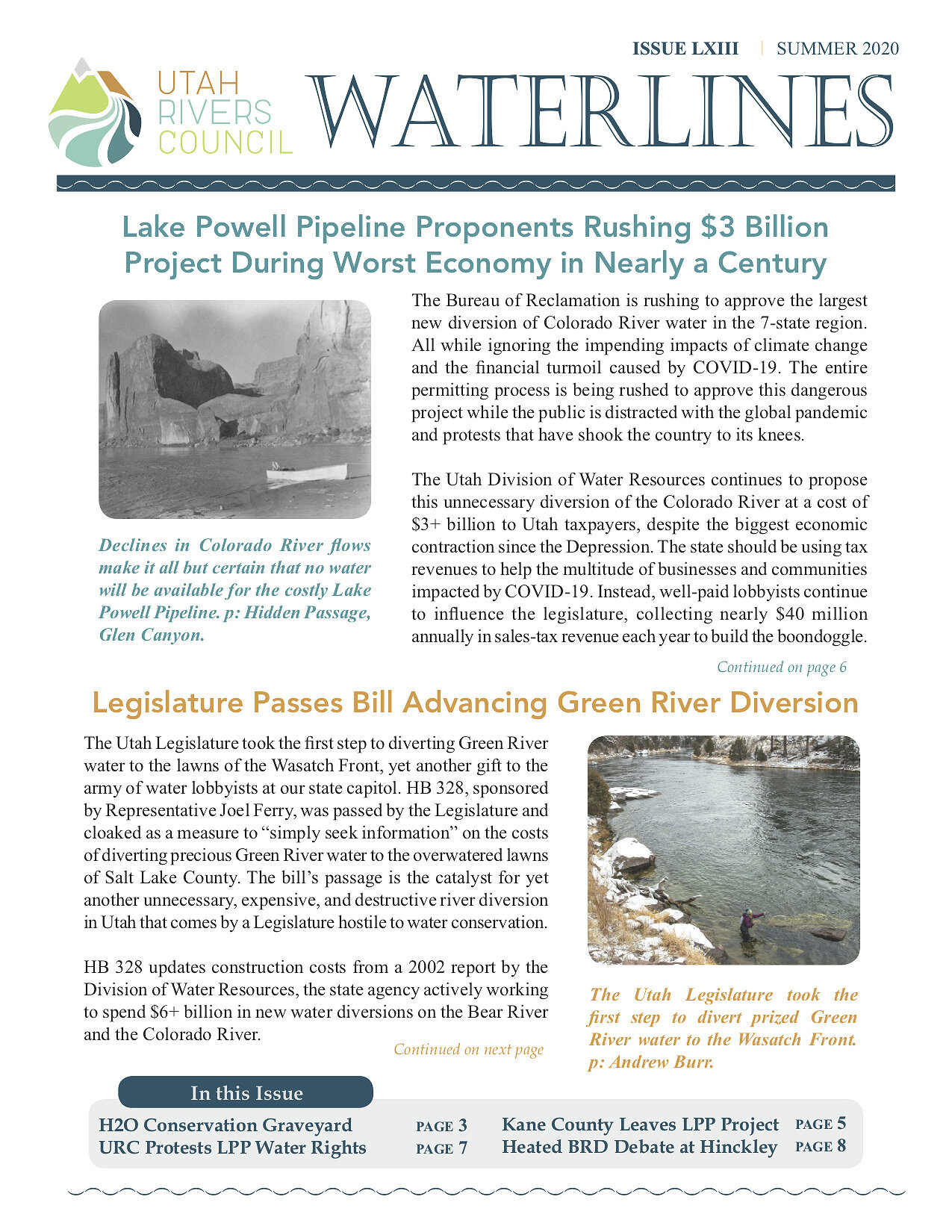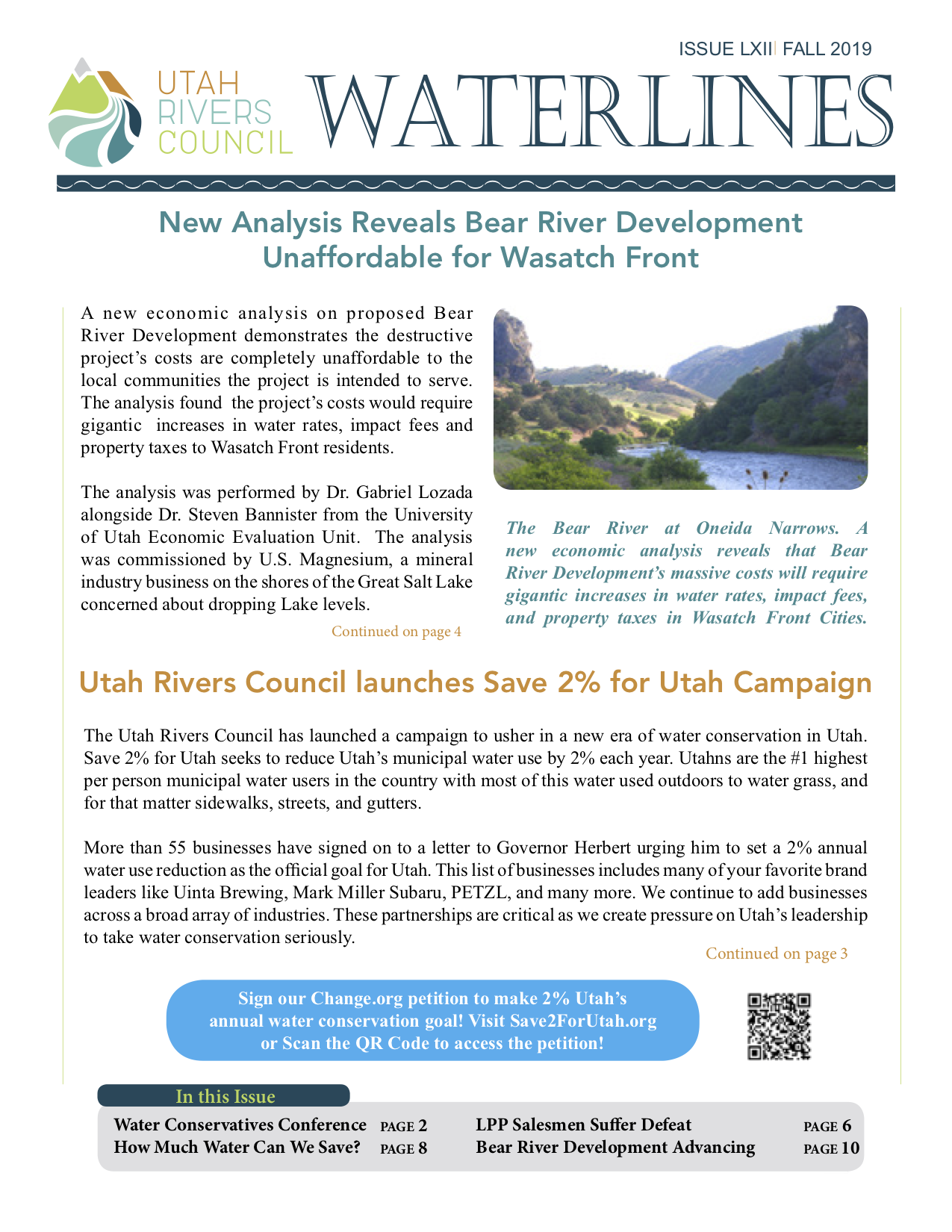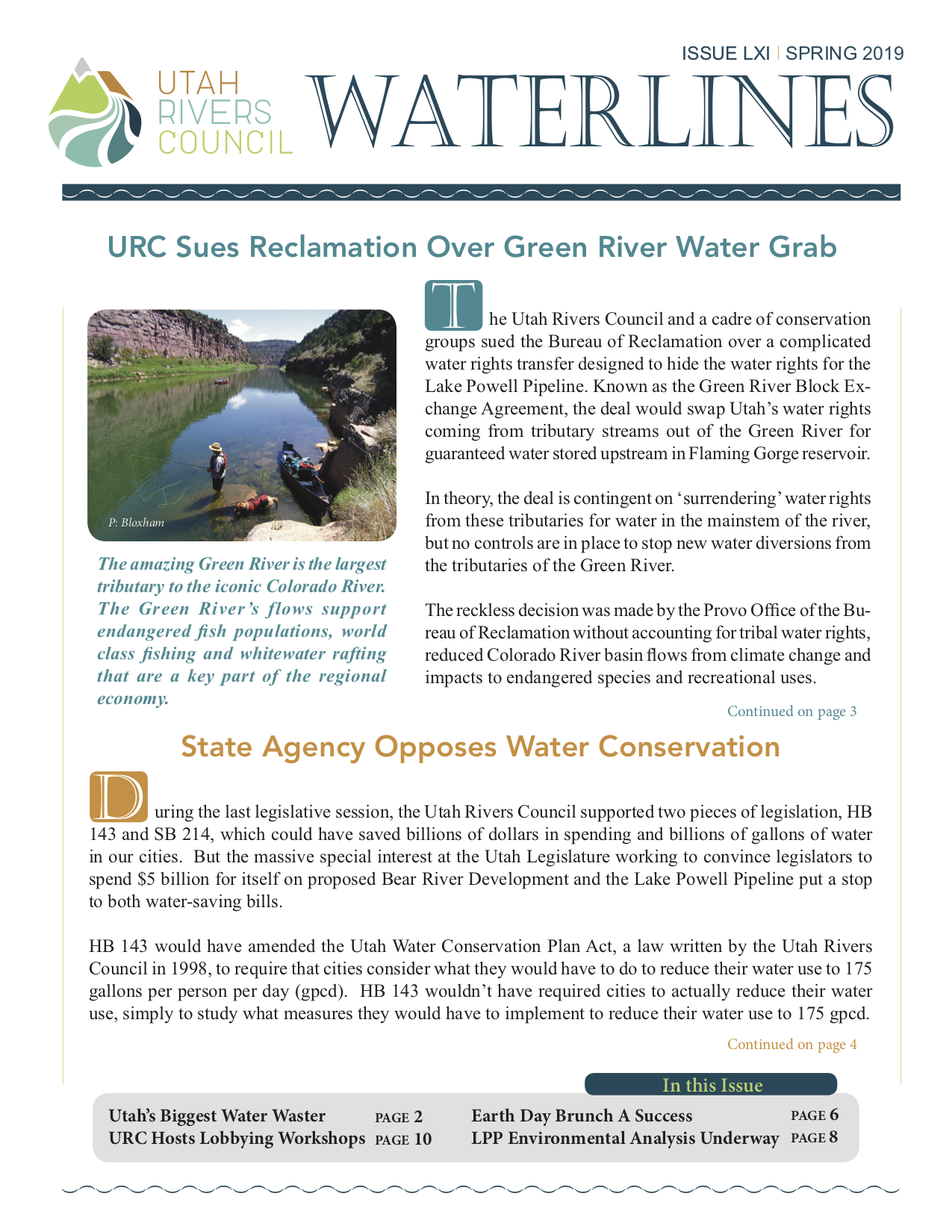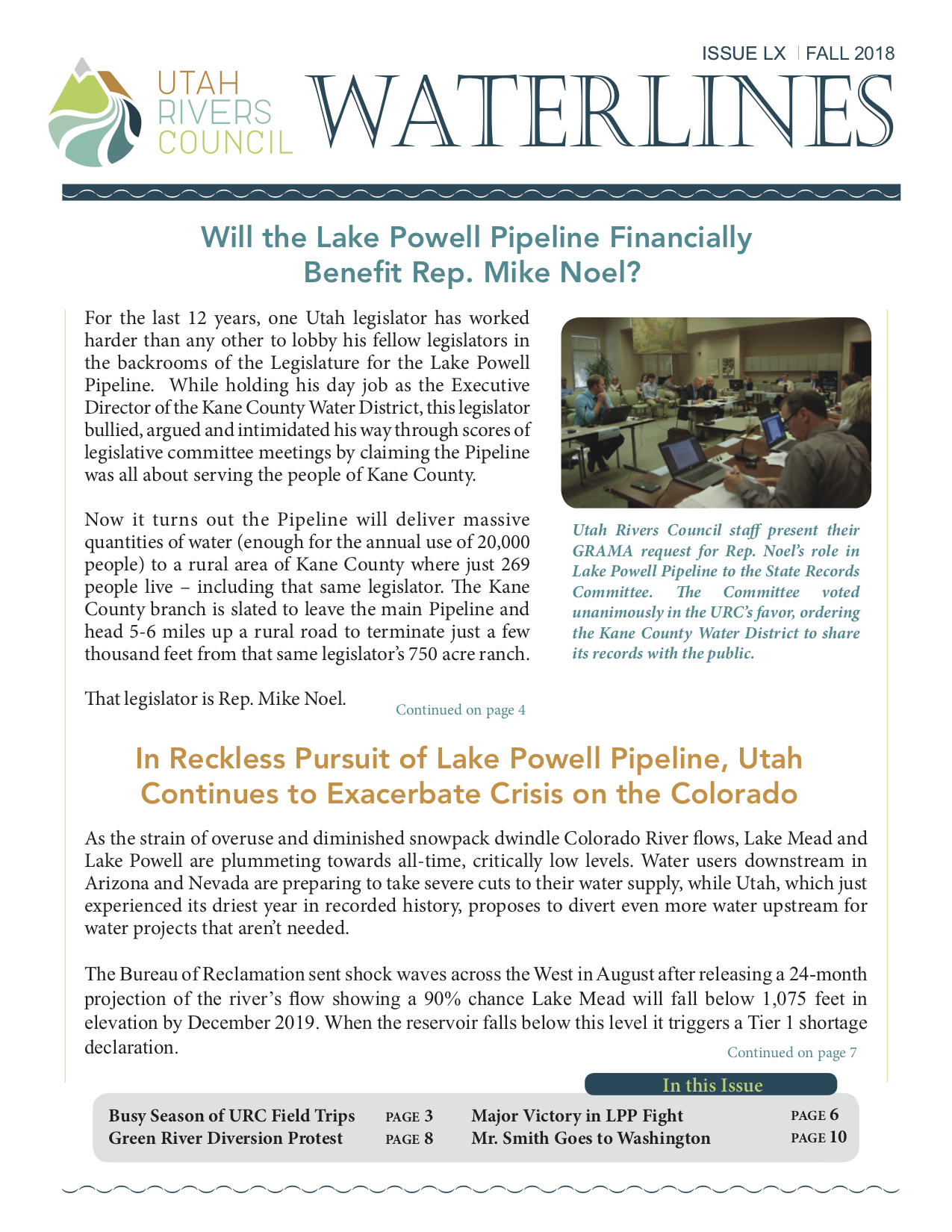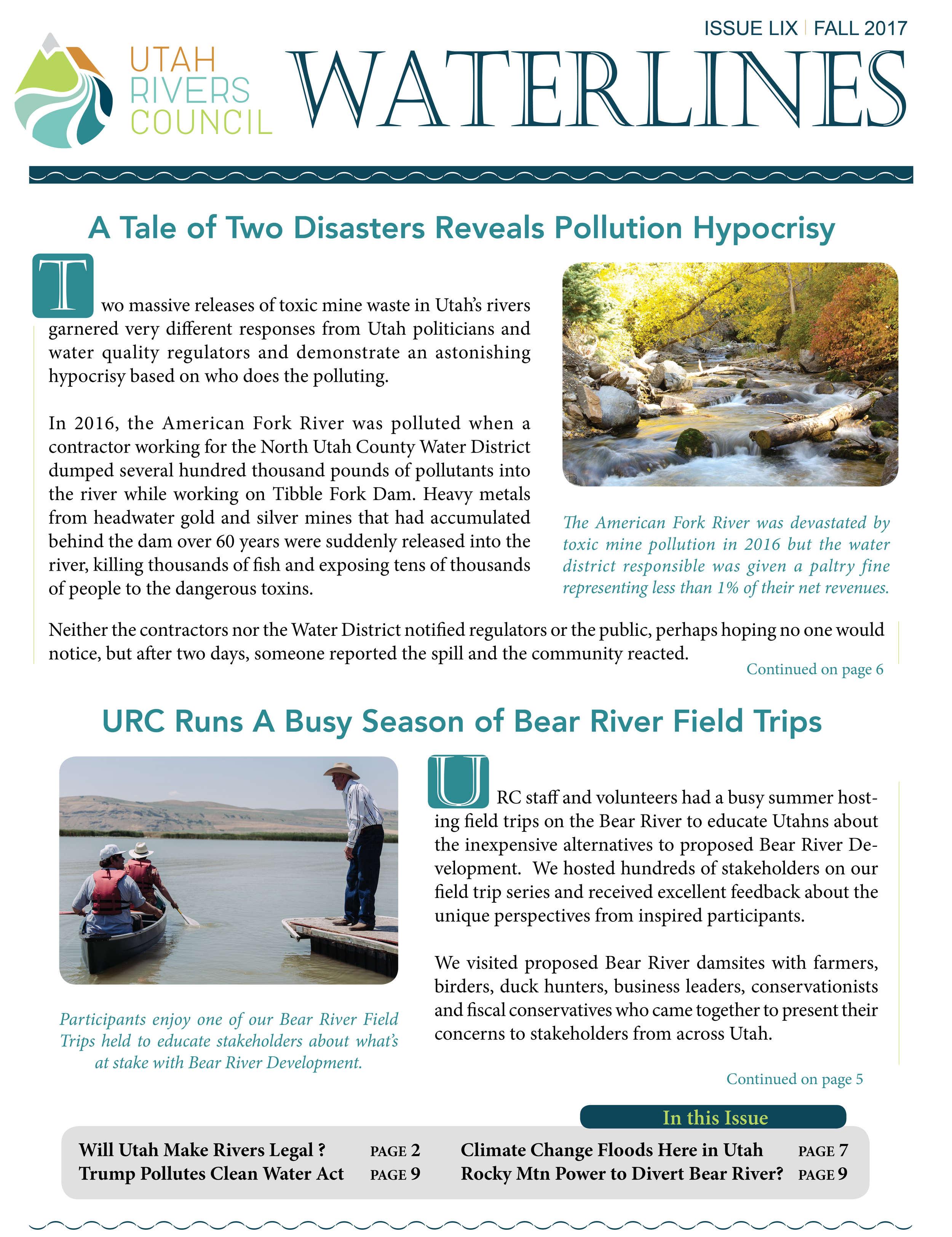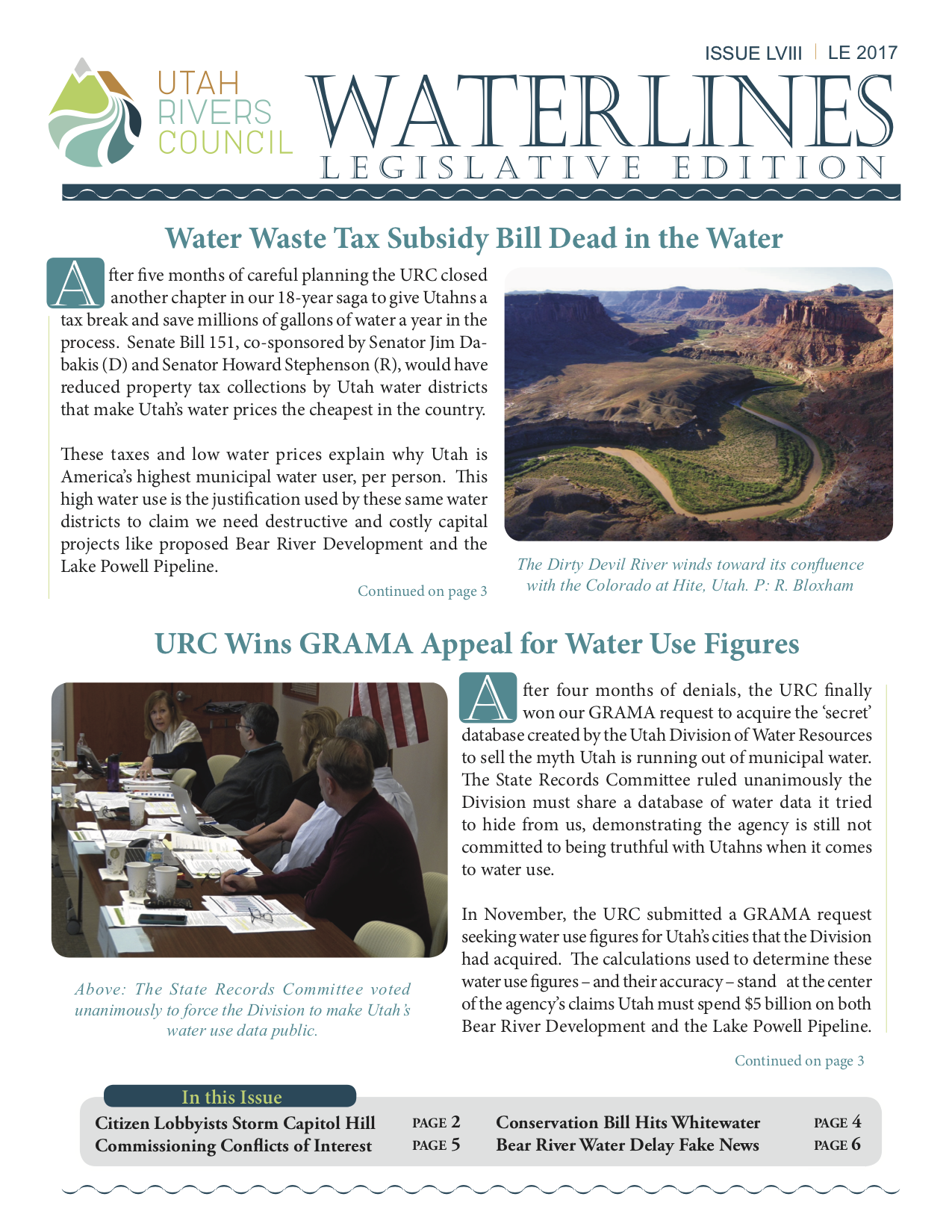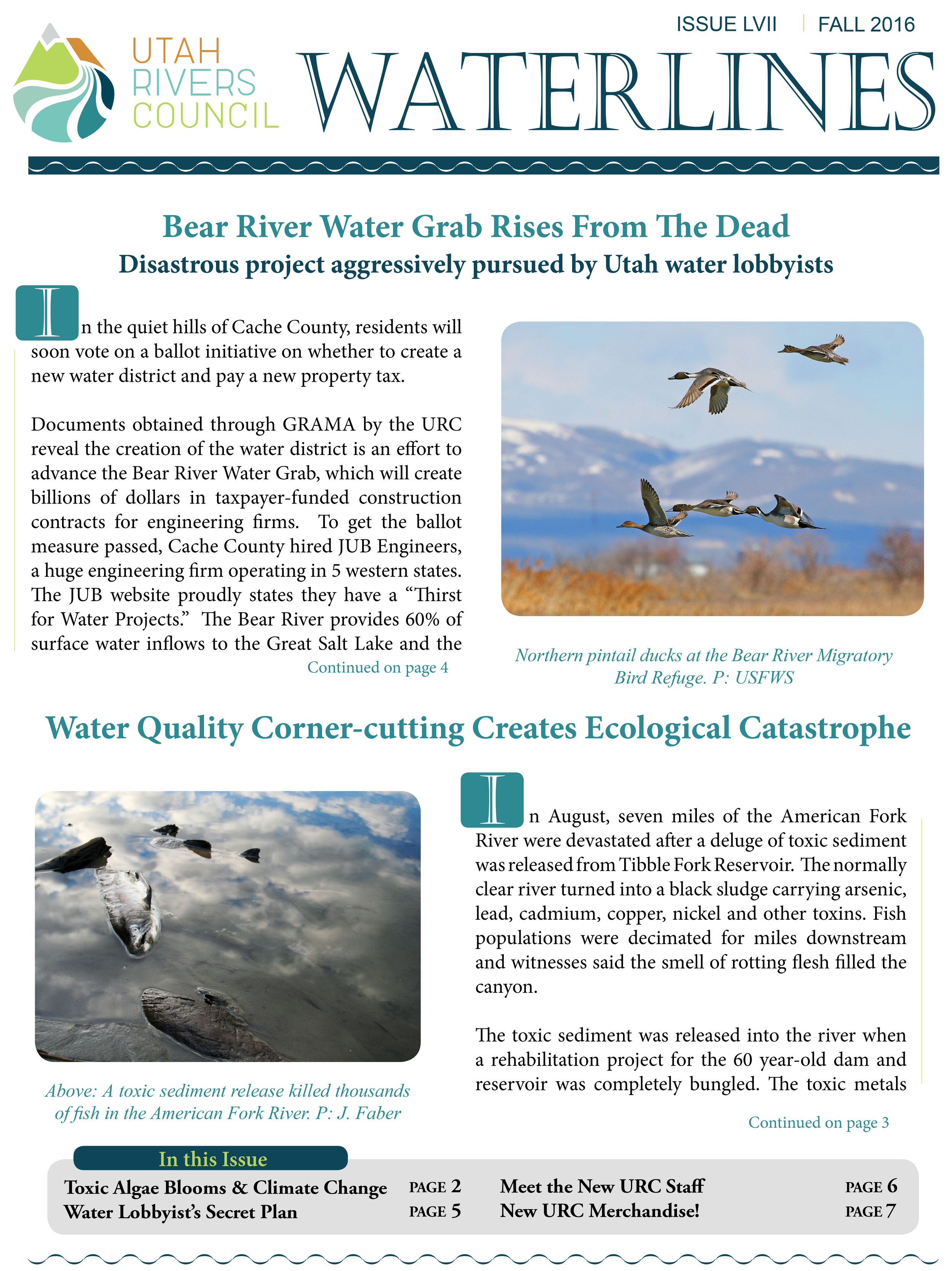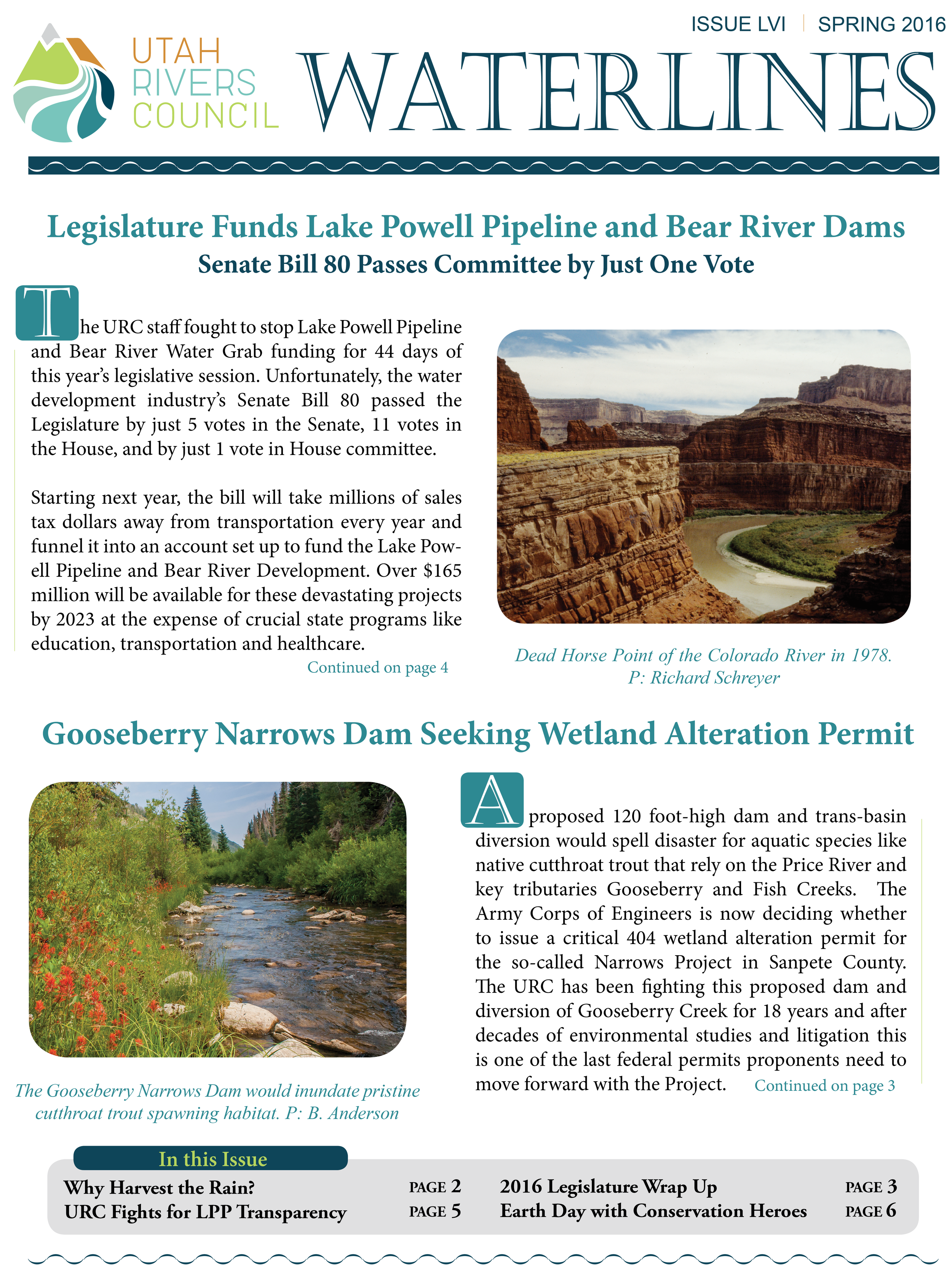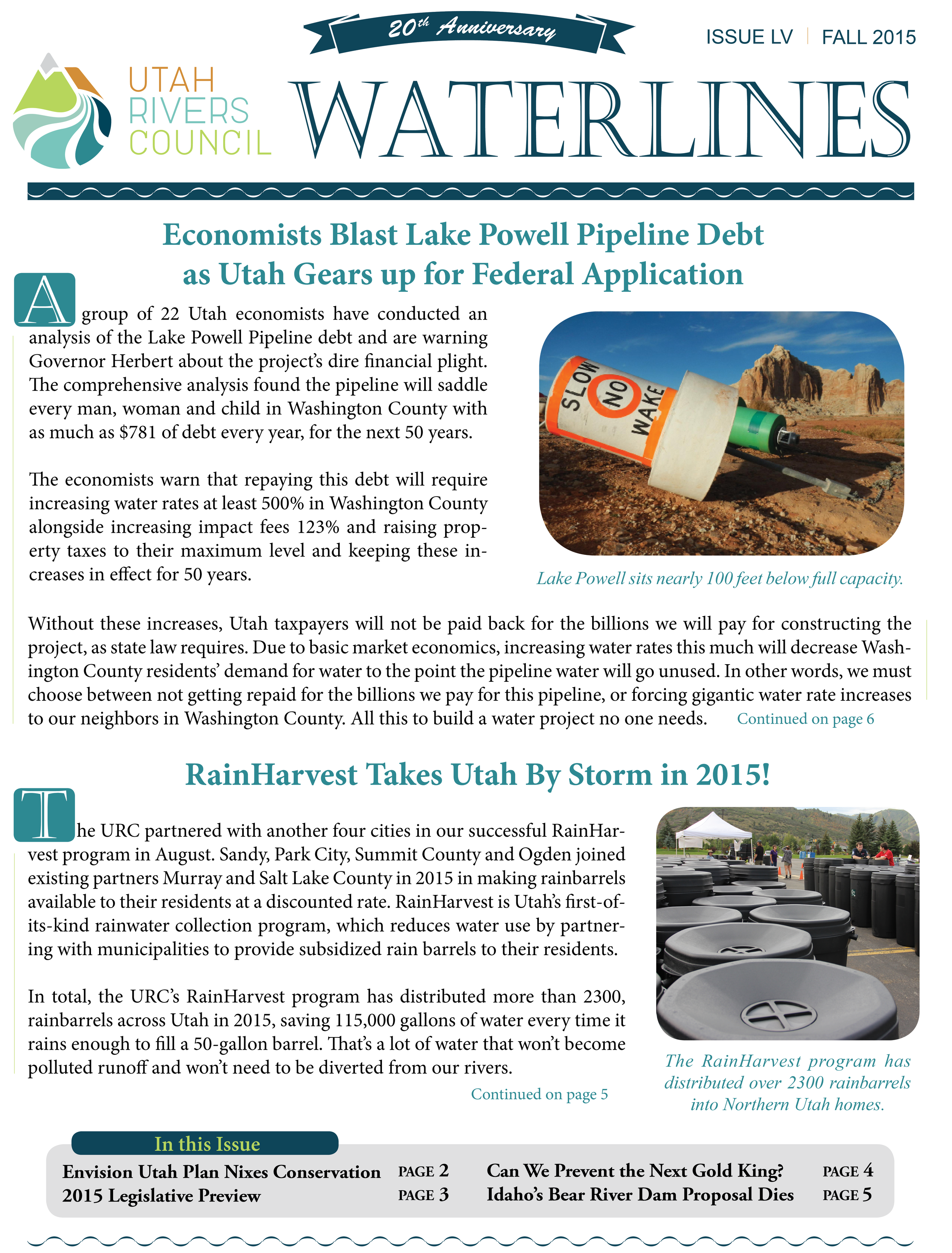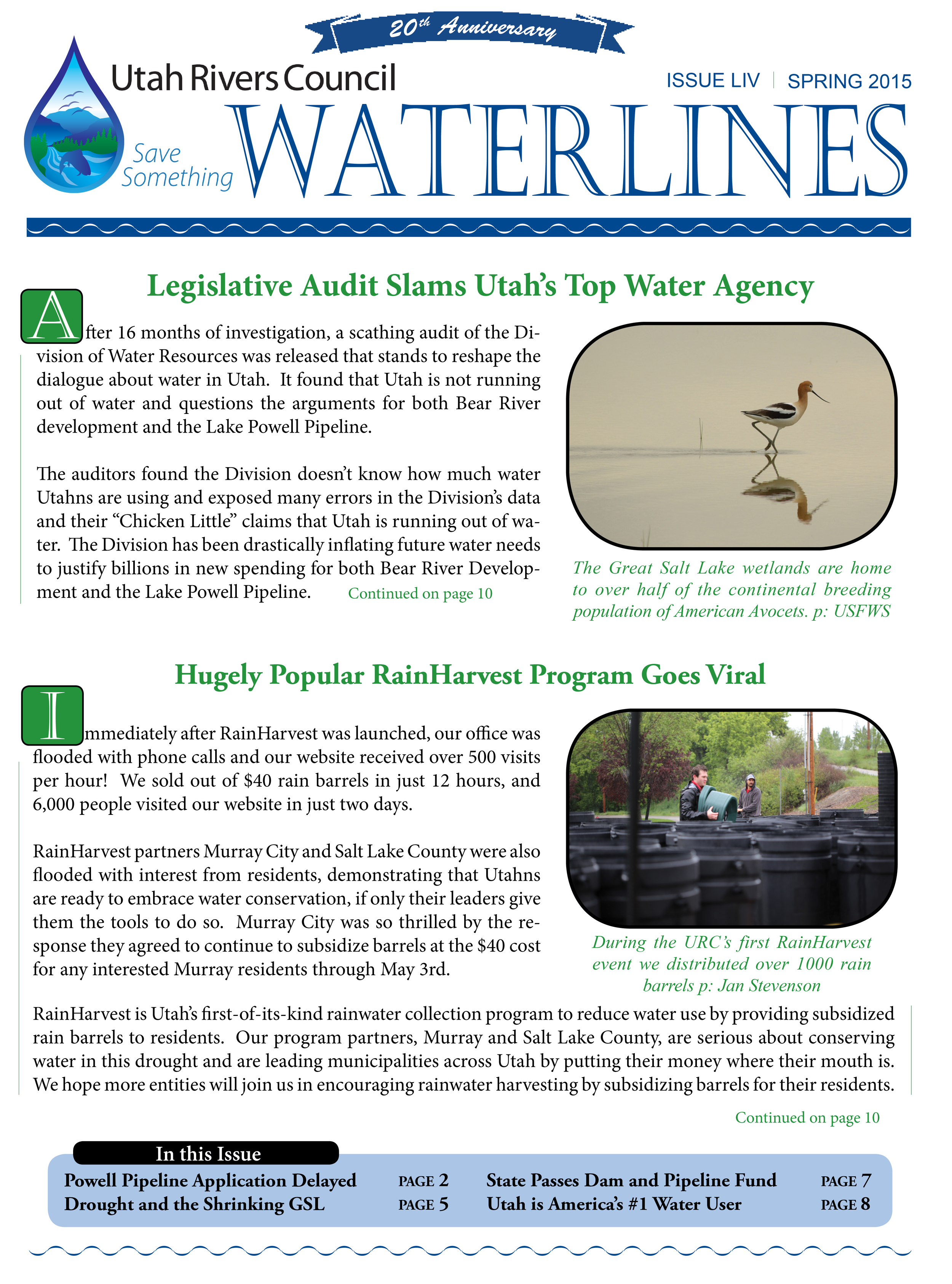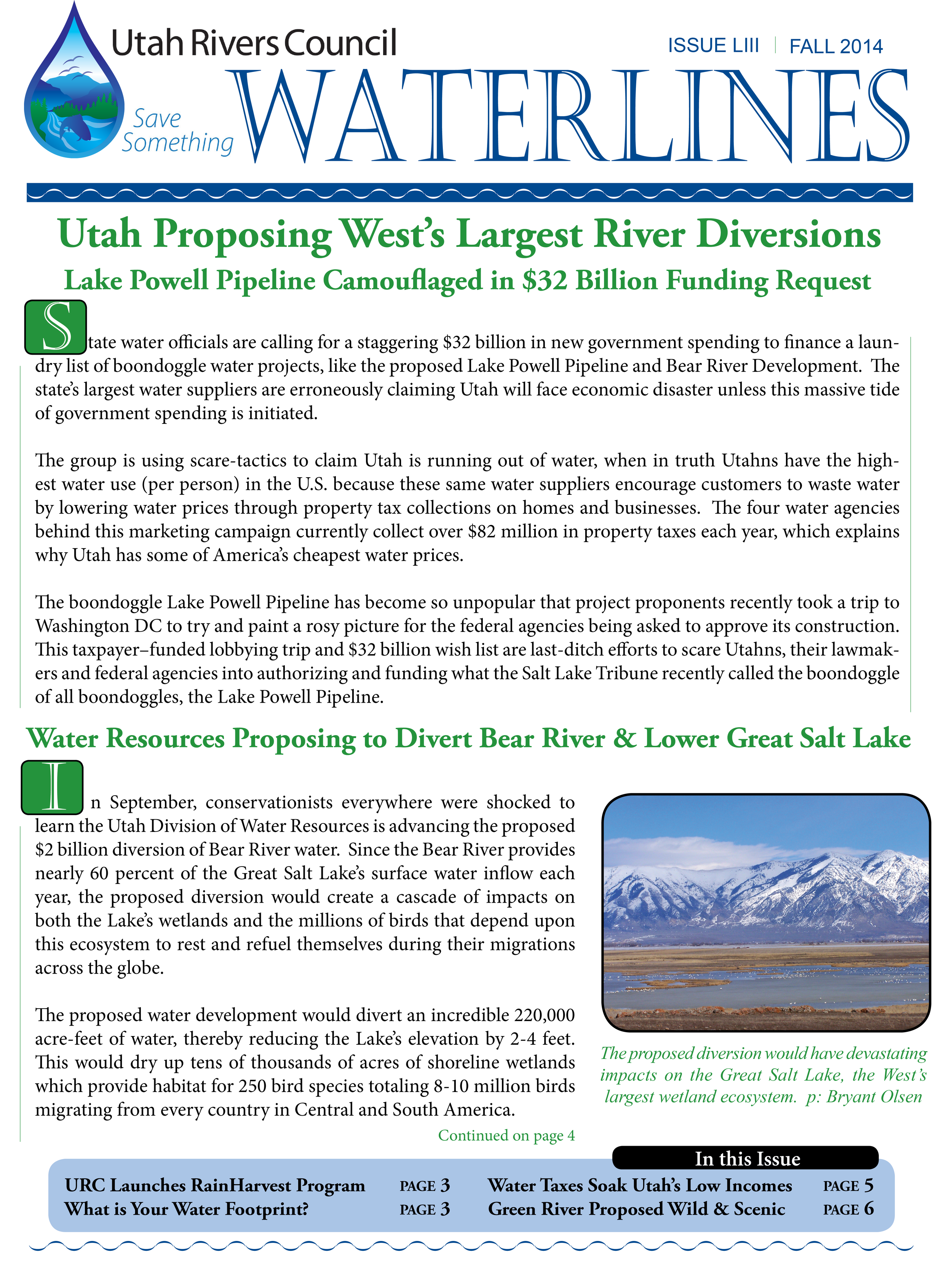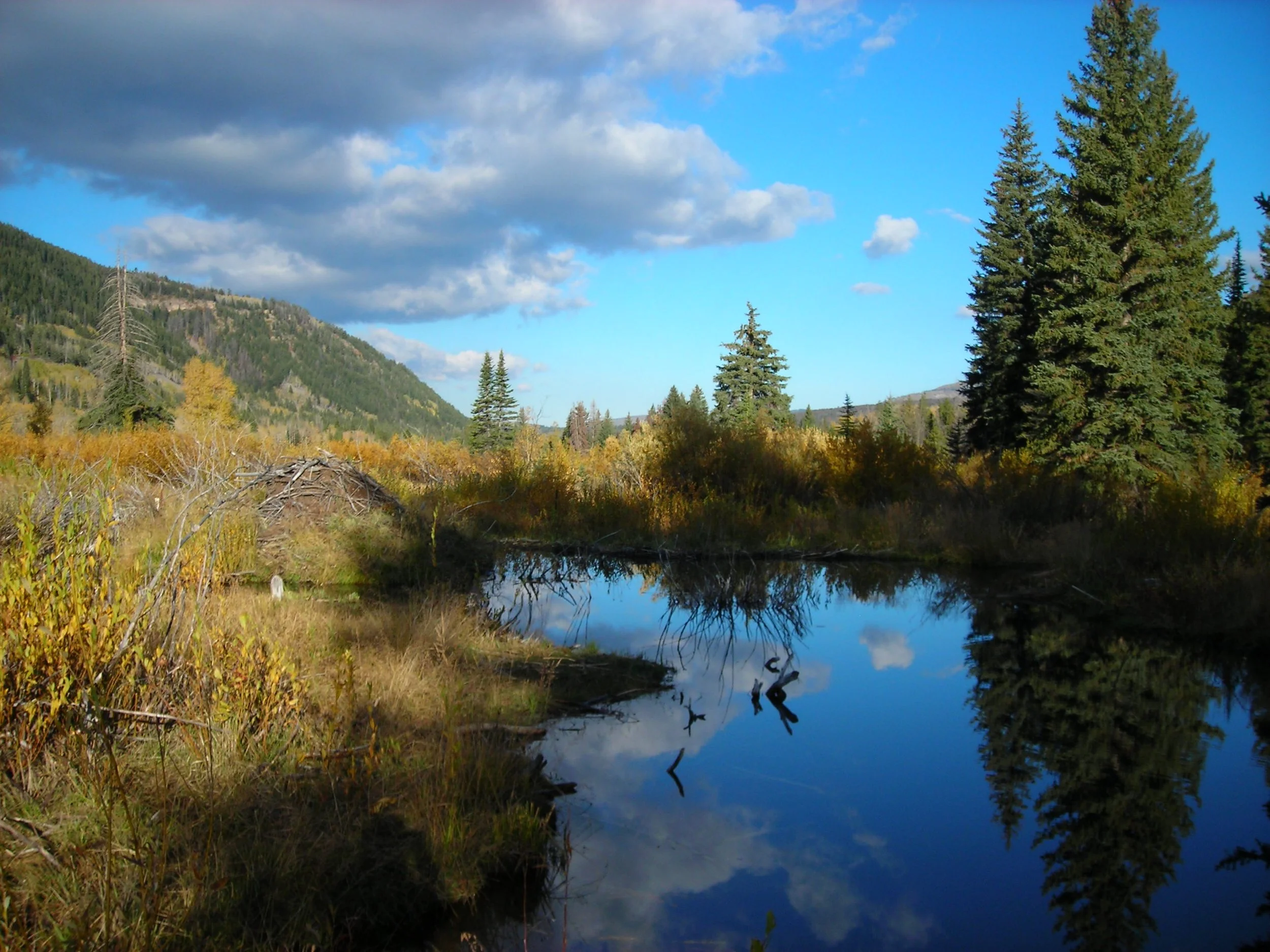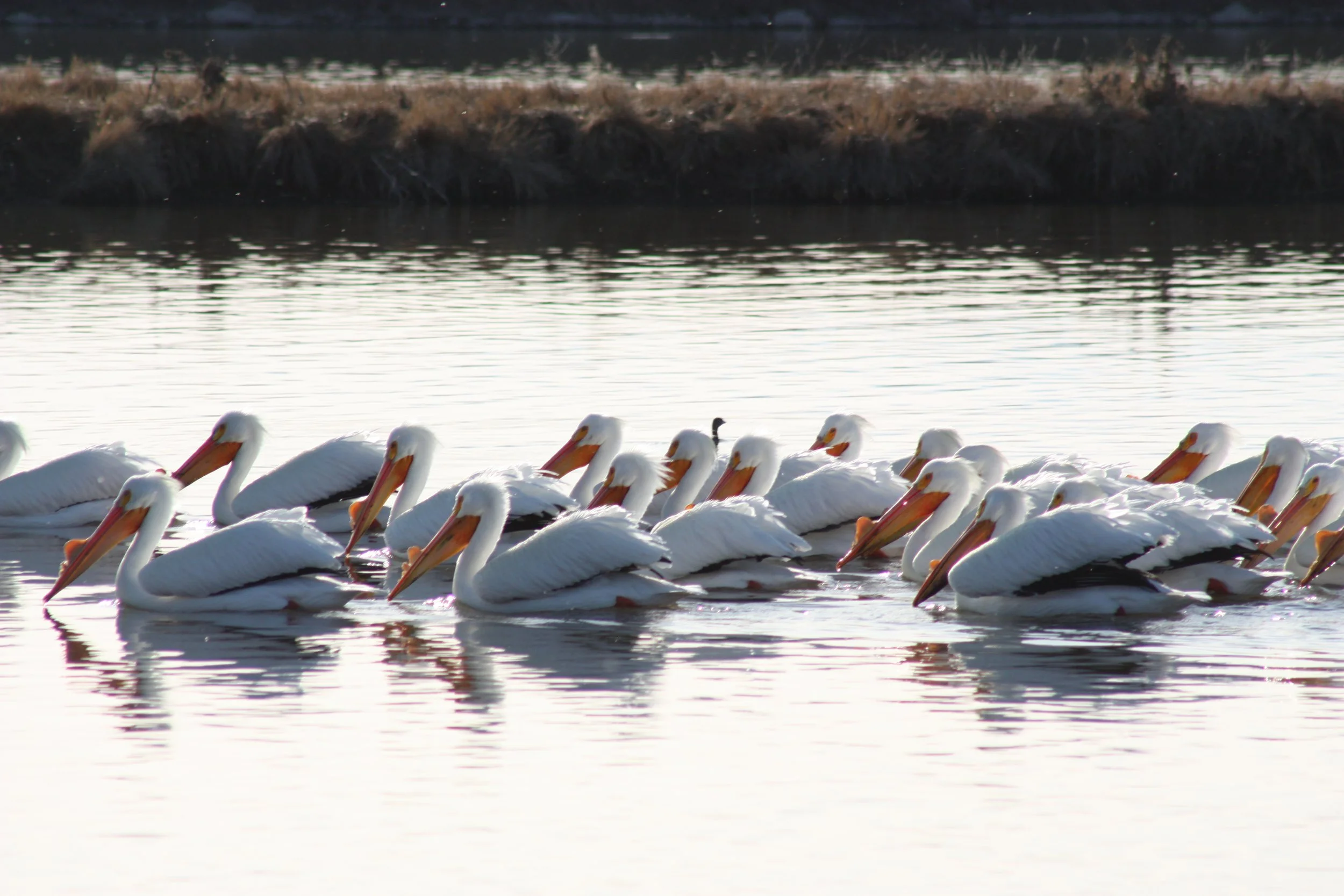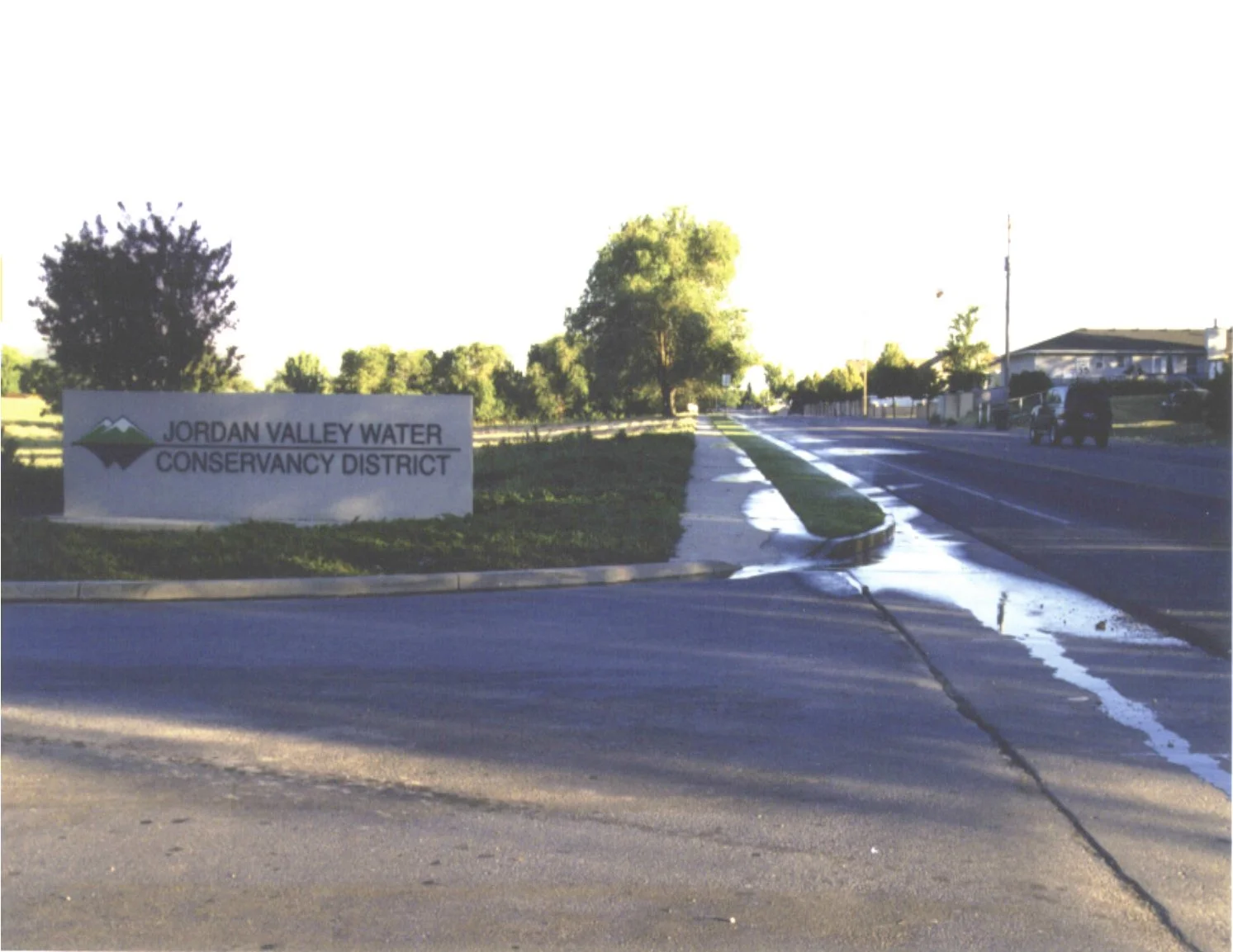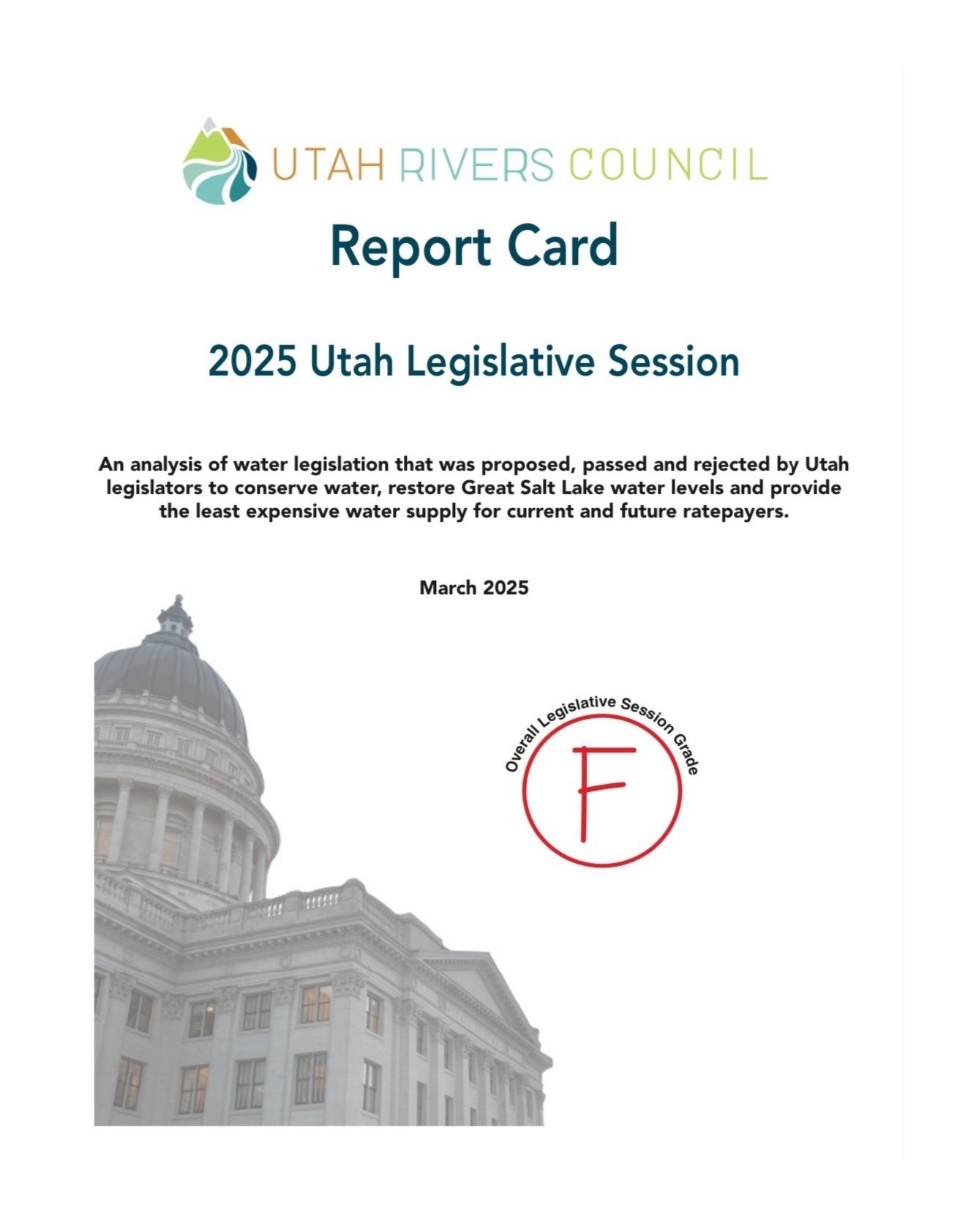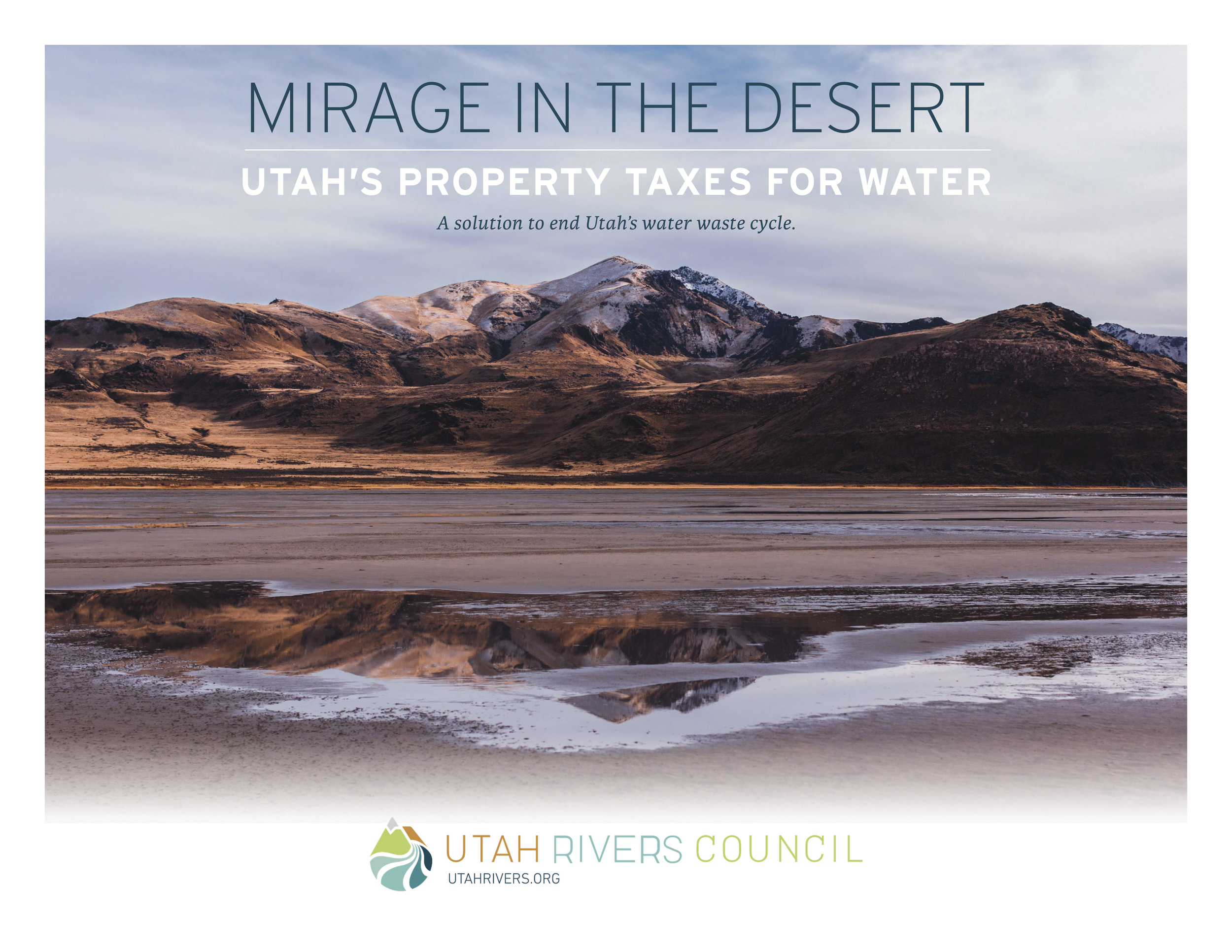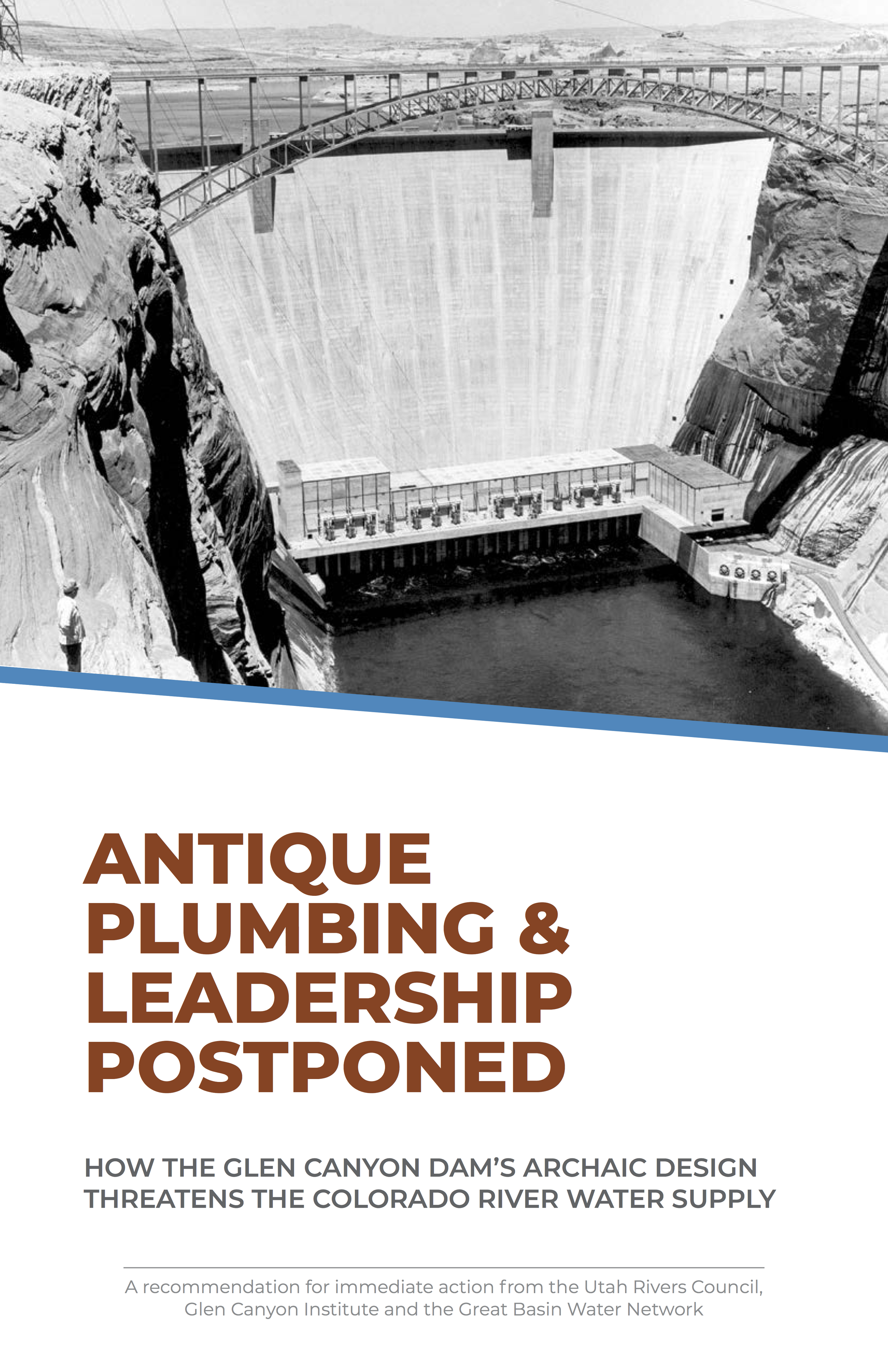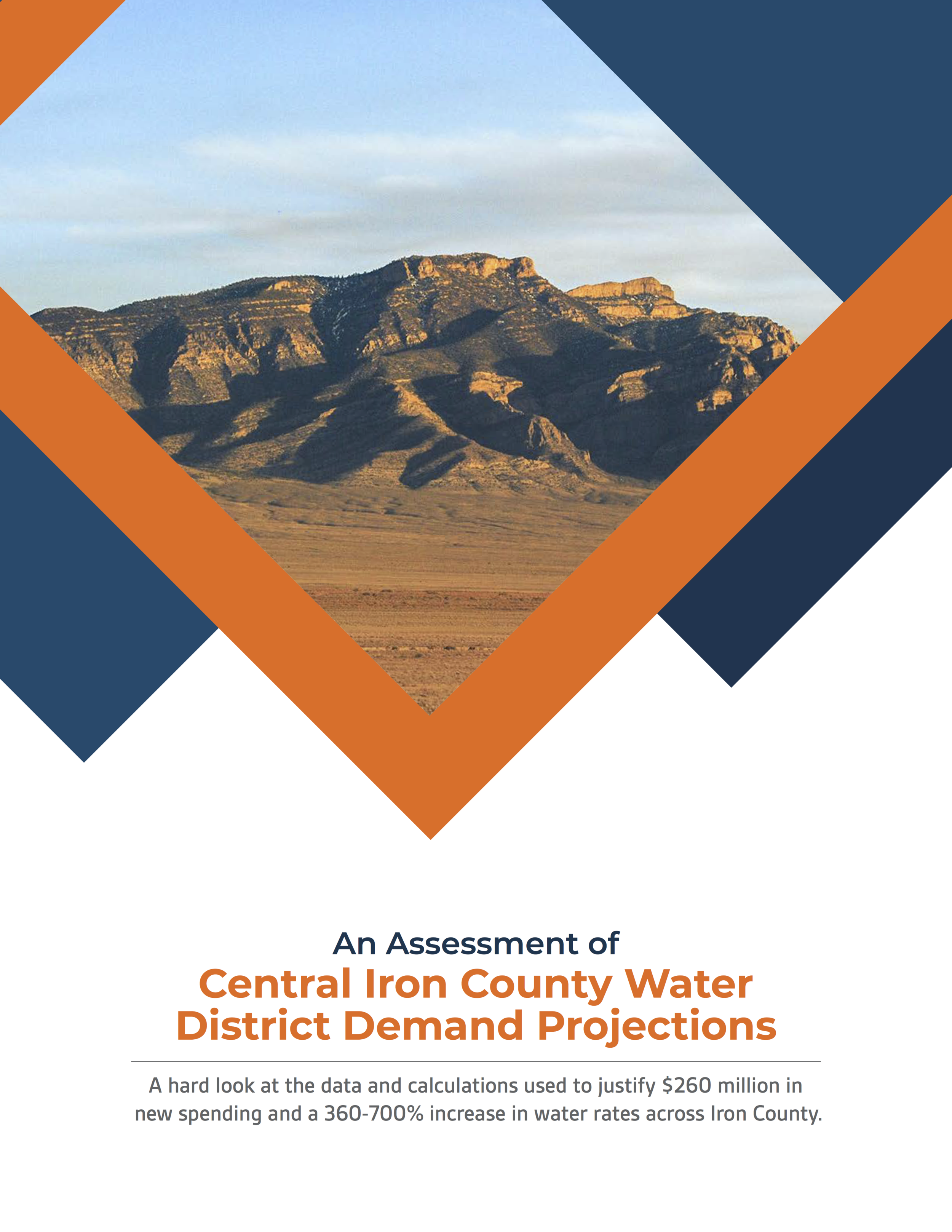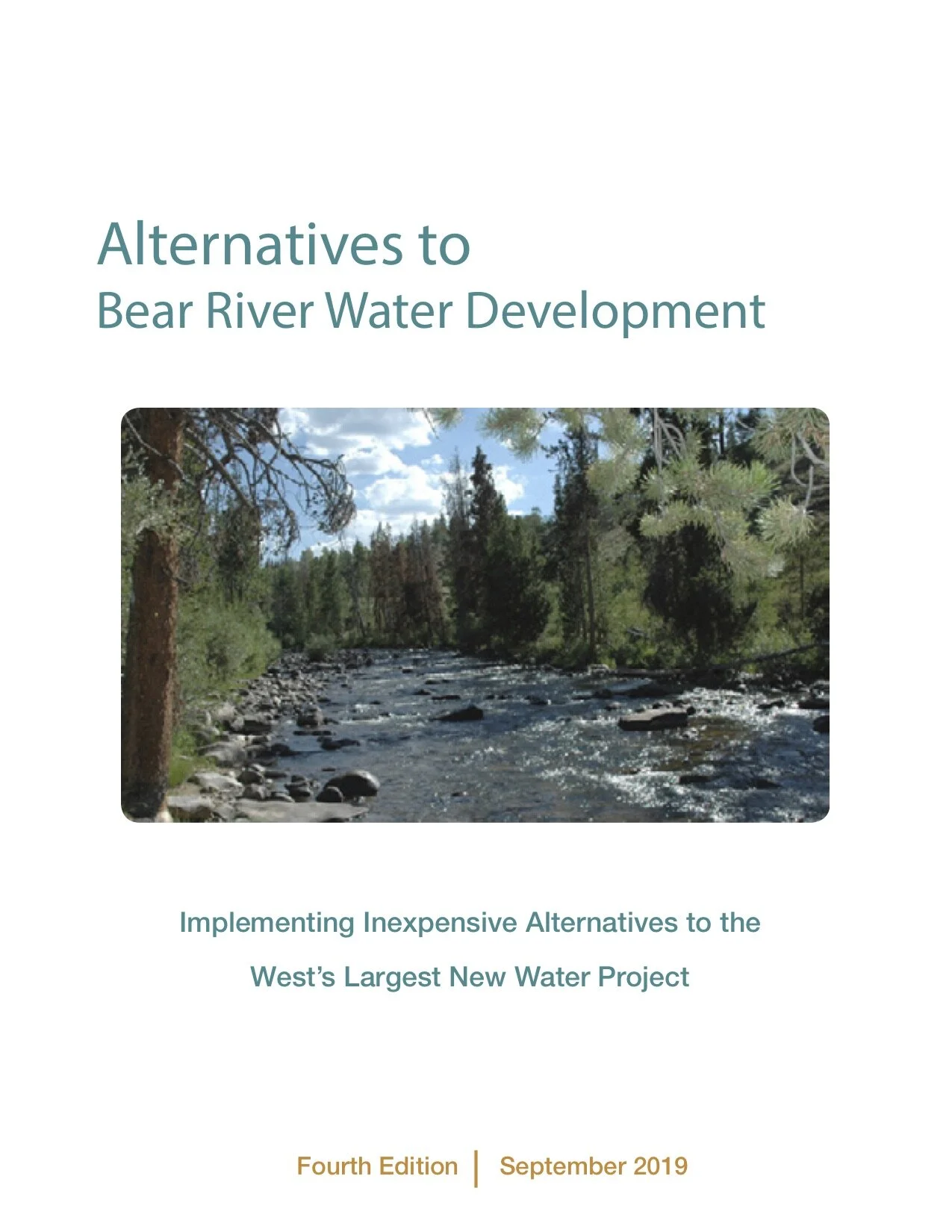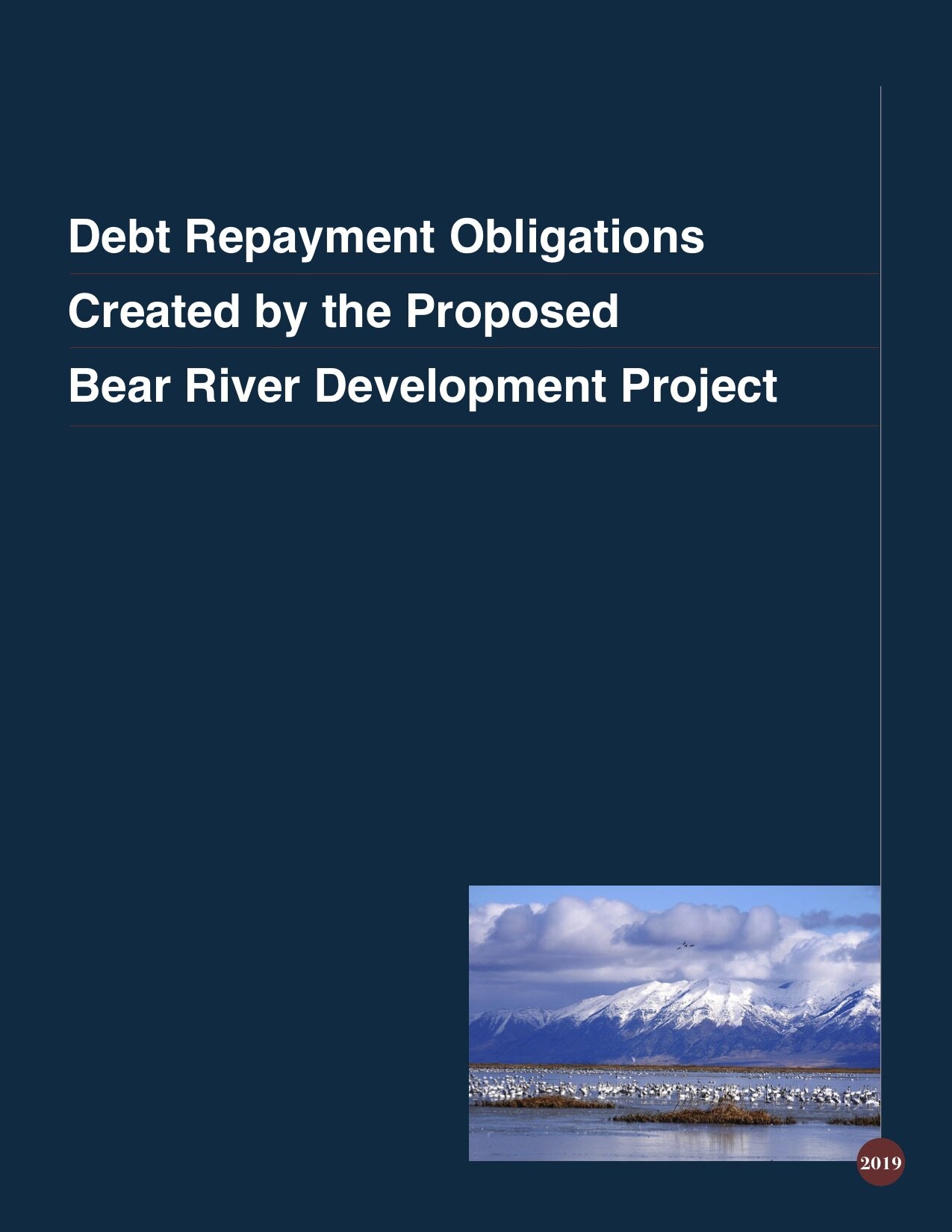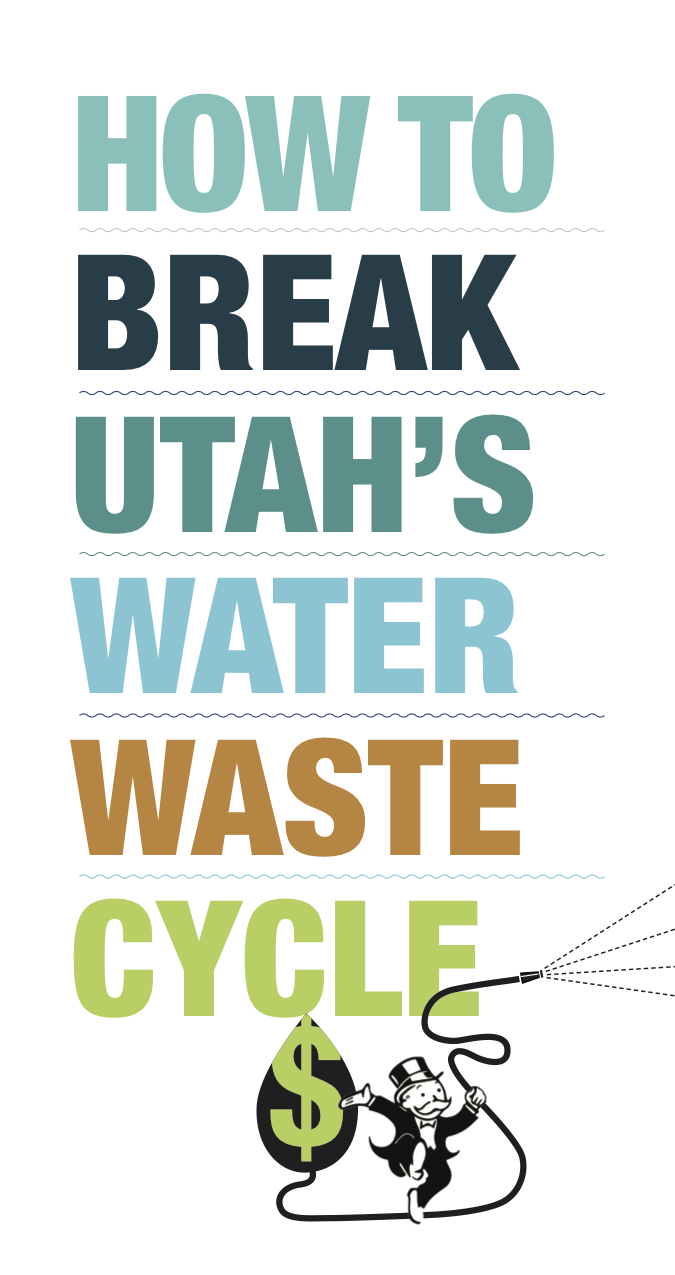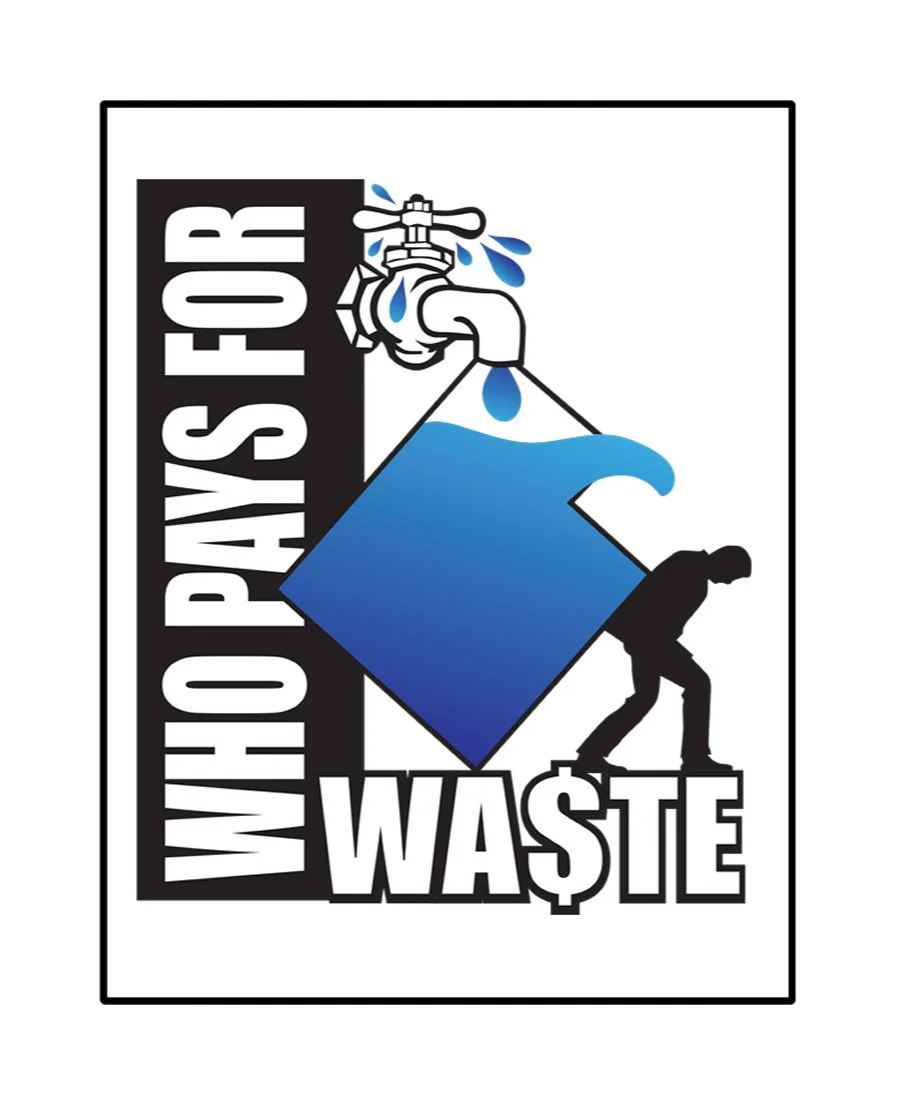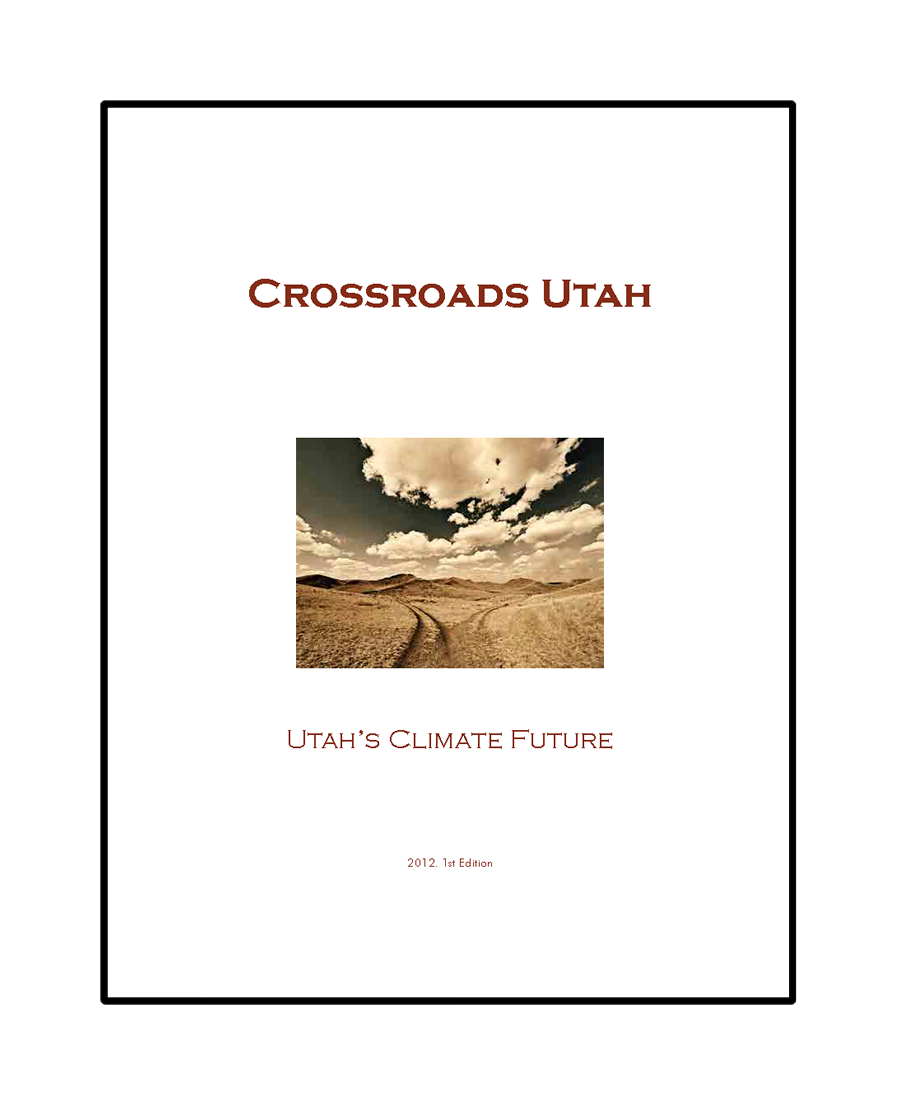Newsletters
Blog
In partnership with the Great Basin Water Network, the Glen Canyon Institute, and several other organizations, Utah Rivers Council unveiled a new report on the imminent Colorado River crisis.
The Secretary of Agriculture just rescinded the Roadless Rule, a move that could undermine water quality for thousands of miles of streams across the American West.
Over staunch objections from the community, the Jordan Valley Water District Board of Trustees raised its property tax collections on cars, housing, and businesses by 11% this month to keep its water rates low.
The Great Salt Lake’s South Arm dropped to 4,192 feet above sea level, triggering toothless conservation measures which are too little and far too late for this struggling ecosystem. The lake is now on track to hit a new historic low in 2026, jeopardizing the 12 million migratory birds it harbors annually, the $1.3 million lake-supported economy, and the health of all Wasatch Front residents. This is a disaster we could have avoided had state leaders not squandered the precious time they had to raise water levels.
The Jordan Valley Water District is proposing to raise the property tax it charges on Utah’s homes, vehicles, and businesses. By collecting property taxes, Utah’s water districts are able to make our municipal water prices the cheapest in the country. And because our water is so cheap, Utahns waste it at higher per person rates than municipal residents of any other state. There just isn’t a compelling financial reason to save water, so many Utahns don’t even think to do so. This results in overwatered lawns, gutters flowing with sprinkler water, and a shrinking Great Salt Lake.
Exploiting the aquifer under the Great Salt Lake to mitigate lakebed dust will prove disastrous for the lake, Utah’s water future, and every Utah taxpayer.
All of Utah is already experiencing moderate to severe drought conditions, even as peak summer temperatures still lie ahead of us. In response, Governor Cox has once again called on Utahns to pray for rain. The Governor seems to have forgotten what he does for a living.
Instead of solving its water problems through commonsense water conservation and pricing measures, the Iron County Water District is eyeing a neighboring aquifer in Beaver County’s Pine Valley. The Iron County Water District’s plan is to build an expensive, $260 million pipeline to loot water from Pine Valley and deliver it to Iron County, enabling the region’s continued water waste.
Last week, Senator Mike Lee released a cynical and calamitous amendment to the Budget Bill which will fund the federal government for the next fiscal year. This proposal puts hundreds of millions of acres of Bureau of Land Management and Forest Service lands across 11 western states up for sale to private owners.
This issue has been widely reported about for the past week, but few are discussing a significant disaster this sell-off would precipitate: the mass water pollution of watersheds throughout the American West. This problem would stem from the privatization of the protected headwaters of our watersheds as they’re surrendered to rampant industrial and commercial development.
Although Representative Celeste Maloy’s original public lands sell-off amendment was struck from the federal budget bill before it passed the House in May, Senator Mike Lee has signaled that he hopes to add the amendment back into the bill while it’s in the Senate. By selling these lands, Lee would effectively pave the way for the Lake Powell Pipeline, so his efforts are a serious threat to water conservation efforts and water users throughout the Colorado River Basin.
The Lake Powell Pipeline has stalled because of its unpopularity inside and outside of Utah for a litany of concerns. This massive proposed diversion of the Colorado River is completely unnecessary for Utah’s future and its approval would result in less water downstream in the Colorado River Basin and force water cuts inside Utah to existing water users. This public land sell-off opens the door to the project’s revival, endangering water supplies for tens of millions of Americans.
Videos











